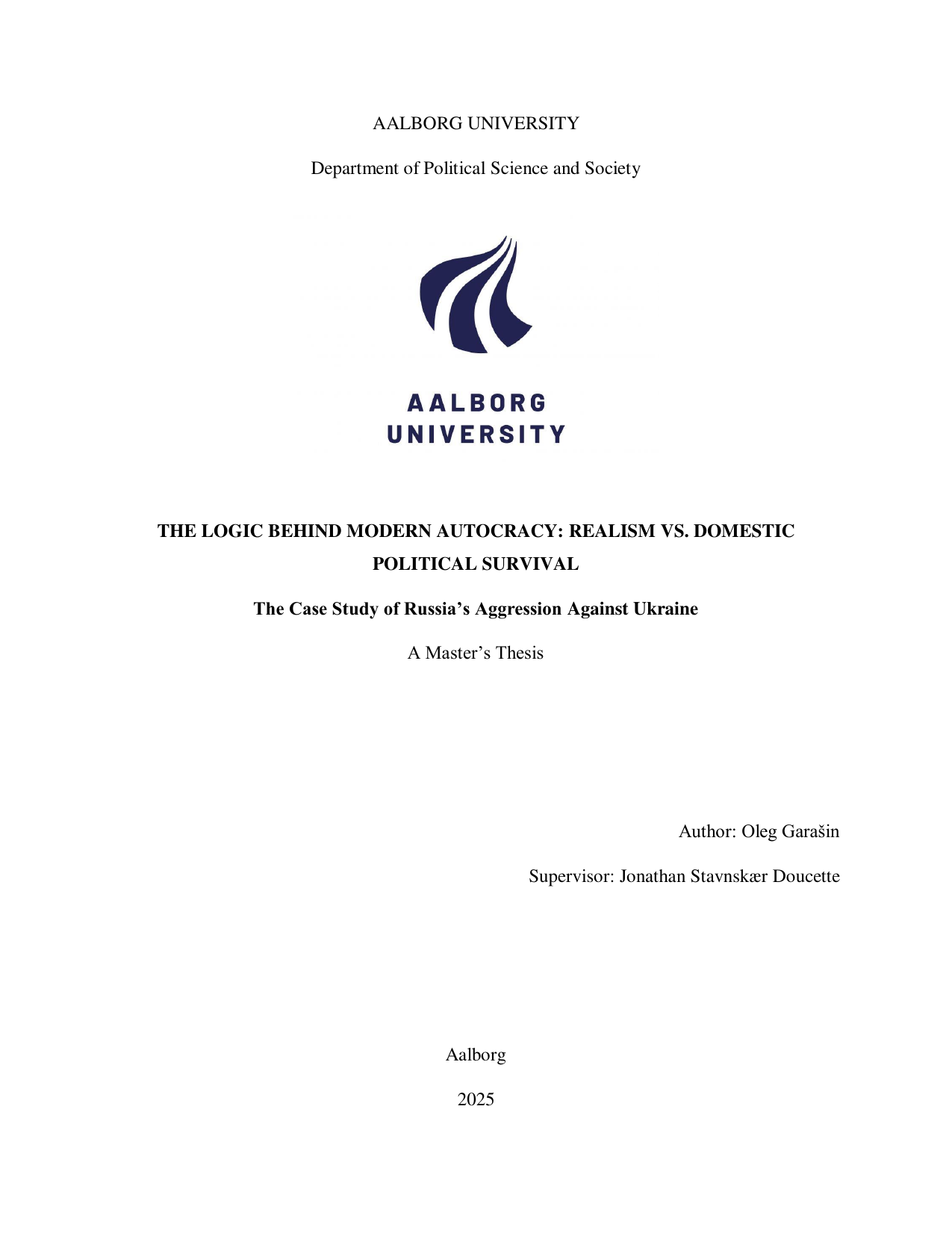
The Logic Behind Modern Autocracy: Realism vs. Domestic Political Survival. The Case Study of Russia's Aggression Against Ukraine.
Author
Term
4. semester
Education
Publication year
2025
Submitted on
2025-05-28
Pages
66
Abstract
This thesis investigates the extent to which Russia’s aggression against Ukraine can be explained by domestic political survival rather than external security concerns or power maximizing strategy. It compares two analytical frameworks: Realist theories (Offensive and Defensive Realism) and theframeworks of Informational Autocracy and Spin Dictatorship provided by Guriev and Treisman. While Realist approaches emphasize NATO expansion and regional power dynamics, they fall short of fully explaining the timing and intensity of Russia’s actions, especially in 2014 and 2022. In contrast, the domestic survival logic of the Russian regime, characterized by manipulation of narratives and information and the importance of legitimacy, provides a deeper explanation. The study argues that the annexation of Crimea in 2014 and the full-scale invasion of Ukraine in 2022 were closely linked to the regime’s internal needs to boost public support and legitimacy. The annexation of Crimea in 2014 significantly boosted domestic support for the Russian regime by reinforcing nationalist sentiment, while the full-scale invasion in 2022 appears to have been driven by the regime’s need to regain legitimacy.
Keywords
Documents
